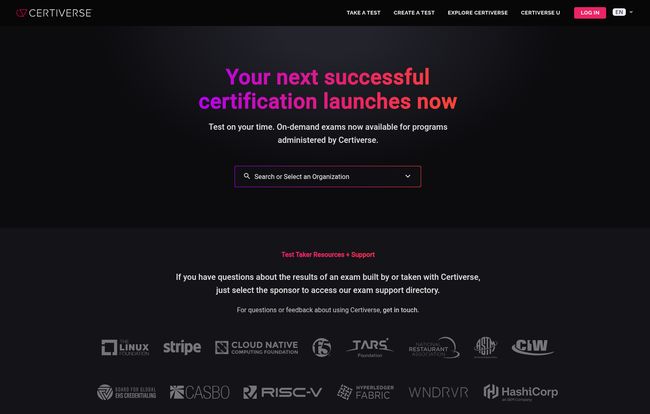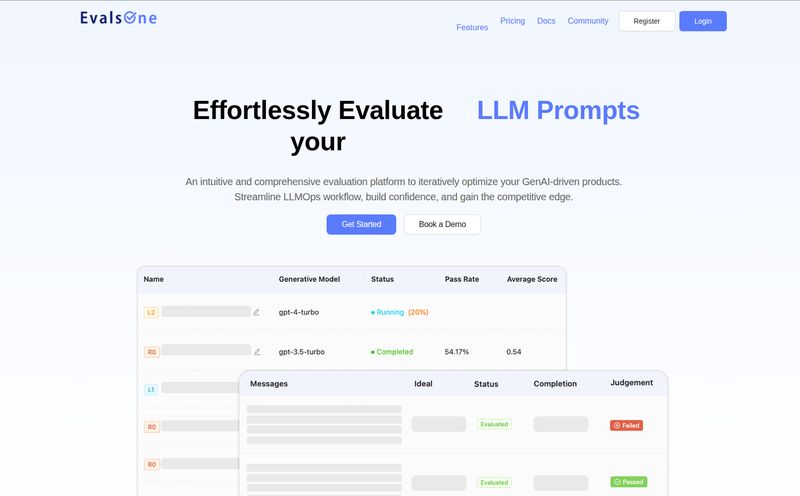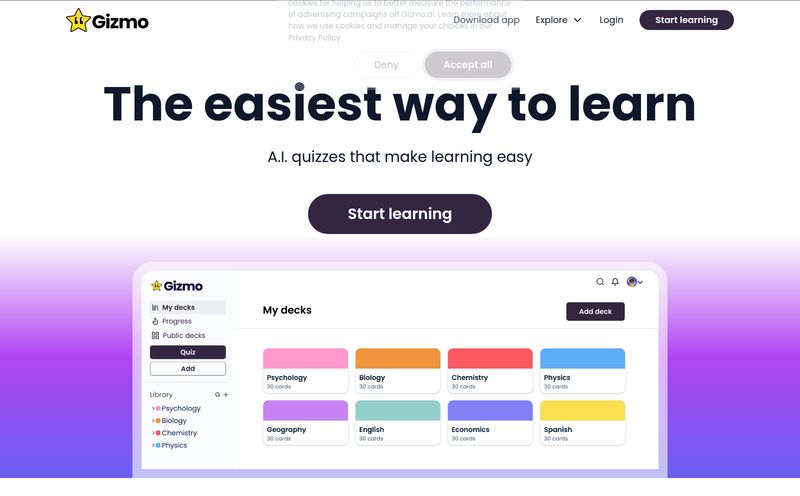I’ve been in the digital marketing and SEO game for a long time. Long enough to remember when getting a new professional certification meant blocking off half a year and hoping the material was still relevant by the time you took the test. The whole process, from conception to the actual exam day, was just... slow. Painfully slow. Like watching paint dry on a skyscraper. You’ve got subject matter experts (SMEs) you need to wrangle, psychometricians to ensure validity, and endless review cycles that make government bureaucracy look nimble.
It’s a headache. And for any organization trying to stay agile, that old model is a boat anchor.
So, when I stumbled upon a platform named Certiverse, my curiosity was definitely piqued. Their main claim is a bold one: taking a certification from “Concept to candidate in weeks, not months.” My inner skeptic immediately raised an eyebrow, but the part of me that’s had to manage these projects was leaning in, listening intently. Could this actually be the real deal?
So, What is Certiverse, Anyway?
At its core, Certiverse is an end-to-end platform designed to completely overhaul how organizations create, manage, and deliver certification exams. Think of it less as a tool and more as a new operating system for professional assessment. Instead of the old, clunky, linear process, they offer a system built for speed, collaboration, and frankly, the way we work now.

Visit Certiverse
They provide the infrastructure for on-demand exams, the tools to build them, and a global network to create the content. The entire philosophy seems to be about removing friction. They claim to help organizations launch tests faster and more cost-effectively by leveraging technology to streamline the most time-consuming parts of the process. And they even toss in free exam development resources, which is a pretty nice cherry on top.
Breaking Down the Core Features
Okay, the high-level pitch sounds great. But as we all know, the devil is in the details. So where does Certiverse really shine? I dug into their offerings, and a few things stood out.
The Speed Advantage: Seriously, from Months to Weeks?
This is the headline act. The promise of shrinking an 18-month development cycle into a matter of weeks is transformative. How do they pull it off? It seems to be a combination of their platform's architecture and their methodology. The system facilitates asynchronous content creation. This is a huge deal. Getting all your SMEs in a room (or even a Zoom call) at the same time is a logistical nightmare. It involves scheduling across time zones, paying for travel, and losing days of productivity. Certiverse allows experts from anywhere in the world to contribute on their own time, writing and reviewing exam questions without the scheduling chaos. It’s a modern solution for a globalized workforce.
Global Subject Matter Experts on Demand
One of the slickest parts of their model is how they handle content. Instead of you having to find, vet, and train every single subect matter expert, Certiverse has built a system that allows for this to happen on a global scale. This means you can tap into a wider, more diverse pool of expertise. Need someone who understands the nuances of a specific cloud computing service in the APAC region? You're more likely to find them this way. They also mention a “vendor-neutral curriculum” to help build a valid assessment. This tells me they understand the principles of good test design—it’s not just about writing questions, it’s about writing the right questions that fairly measure knowledge.
An All-in-One Platform for Building and Delivering
Certiverse isn't just a project management tool; it’s the whole factory. It includes the tools to build the exam items, assemble the test forms, and deliver them to candidates on-demand. This integration is key. I've seen organizations try to stitch together a solution using a dozen different tools—a survey app for item writing, spreadsheets for tracking, and a separate platform for test delivery. It's clunky, insecure, and inefficient. Having it all under one roof is a massive win for consistency and quality control.
The Social Proof is Strong with This One
Let's be honest, in the B2B world, a good client list is worth its weight in gold. And Certiverse doesn’t disappoint here. Their homepage is a veritable “who’s who” of the tech and business world. We’re talking about organizations like:
- Stripe
- The Linux Foundation
- Cloud Native Computing Foundation (CNCF)
- HashiCorp
- GitLab
- RISC-V
Seeing logos like these tells you this isn’t some untested startup. These are serious organizations with rigorous standards. If Certiverse can meet their needs, it's a powerful testament to their platform's capabilities. It’s one thing to make a bold claim; it's another to have industry leaders backing you up.
Let's Talk Money: The Elusive Pricing Question
Alright, here’s the part everyone wants to know. What does it cost? And this is where things get a bit... murky. There’s no pricing page on their site. This isn't unusual for enterprise-level SaaS platforms, which typically operate on a “contact us for a custom quote” model. Your cost will likely depend on the number of exams, candidate volume, and the level of support you need.
However, they do make a very specific claim: an average of 80% savings over traditional development models. That's a staggering number. When you think about the costs of flying SMEs around, the hourly rates of psychometric consultants, and the sheer man-hours involved in the old way, you can see how the savings could pile up quick. While I'd love to see a transparent pricing tier, the value proposition is framed around a massive reduction in your current spending, which is a compelling angle.
The Good, The Bad, and The Cookie
No platform is perfect, right? Every tool has its strengths and its quirks. From my analysis, Certiverse has a lot going for it. The speed, the cost-effectiveness, the modern collaborative approach—it's all fantastic. It solves a real, tangible problem for a lot of companies and professional bodies. The access to free exam development expertise is a generous and smart offer, lowering the barrier to entry for organizations that know they need a certification but dont know where to start.
On the flip side, the lack of public pricing is a minor frustration for people like me who want to do a quick comparison. The other potential drawback noted is a reliance on cookies for functionality. In an increasingly privacy-focused world, this is something to be aware of, though it's hardly a deal-breaker for most and is standard practice for most web platforms. For me, the pros far, far outweigh these minor points.
Who Is Certiverse Really For?
So, who should be scheduling a demo right now? In my opinion, Certiverse is a perfect fit for a few key groups:
- Tech Companies: Especially those in fast-moving fields like cloud, cybersecurity, or AI. Your products change every six months; your certification program can't be two years behind.
- Professional Associations: Any organization that needs to credential its members and wants to offer a modern, accessible experience.
- Large Enterprises: Companies that need to run internal certification programs for partners, sales teams, or support staff will see a huge ROI from the efficiency gains.
If you're still managing your exam development on a series of spreadsheets and email chains, you owe it to yourself to see what a modern platform can do. It's for anyone who looks at their current process and thinks, “There has to be a better way.”
Final Thoughts on a Faster Future for Certification
Look, the world of professional development and training is changing. The demand for verifiable skills is higher than ever, and the pace of innovation isn't slowing down. Tools and platforms that can't keep up will be left behind.
Certiverse appears to be one of the platforms leading the charge. They've clearly identified a major pain point in the industry and have built a smart, comprehensive solution to address it. By transforming exam development from a slow, expensive marathon into a quick, collaborative sprint, they’re not just offering a new tool—they’re offering a genuine competitive advantage. For any organization that views certification as a critical part of its ecosystem, that’s an incredibly powerful thing.
Frequently Asked Questions (FAQ)
- What exactly is Certiverse?
- Certiverse is an online platform that helps organizations create and launch professional certification exams much faster and more cost-effectively than traditional methods. It combines exam creation tools, on-demand test delivery, and a system for asynchronous collaboration with subject matter experts from around the world.
- How does Certiverse make exam creation faster?
- The primary speed boost comes from its platform allowing asynchronous work. This means subject matter experts can write and review exam questions on their own schedule, eliminating the delays and costs associated with coordinating in-person or live virtual workshops.
- Is Certiverse a good choice for smaller businesses?
- While they have many large enterprise clients, their model could be very beneficial for smaller or growing businesses. By reducing the enormous overhead and time commitment of traditional exam development, it makes creating a professional certification program much more attainable.
- Can I see Certiverse's pricing on their website?
- No, Certiverse does not list specific pricing plans on their website. It operates on a custom quote basis, which is common for enterprise software. You'll need to contact them directly for a demo and a price tailored to your organization's needs.
- What kinds of well-known companies use Certiverse?
- Certiverse is used by a number of major players in the tech industry, including Stripe, The Linux Foundation, the Cloud Native Computing Foundation (CNCF), and GitLab, which speaks to the platform's reliability and security.
- Does Certiverse help you find subject matter experts (SMEs)?
- The platform is designed to facilitate collaboration with your own SMEs or a global pool of them. Their system streamlines the process of engaging experts, allowing them to contribute to content creation efficiently from anywhere in the world.



